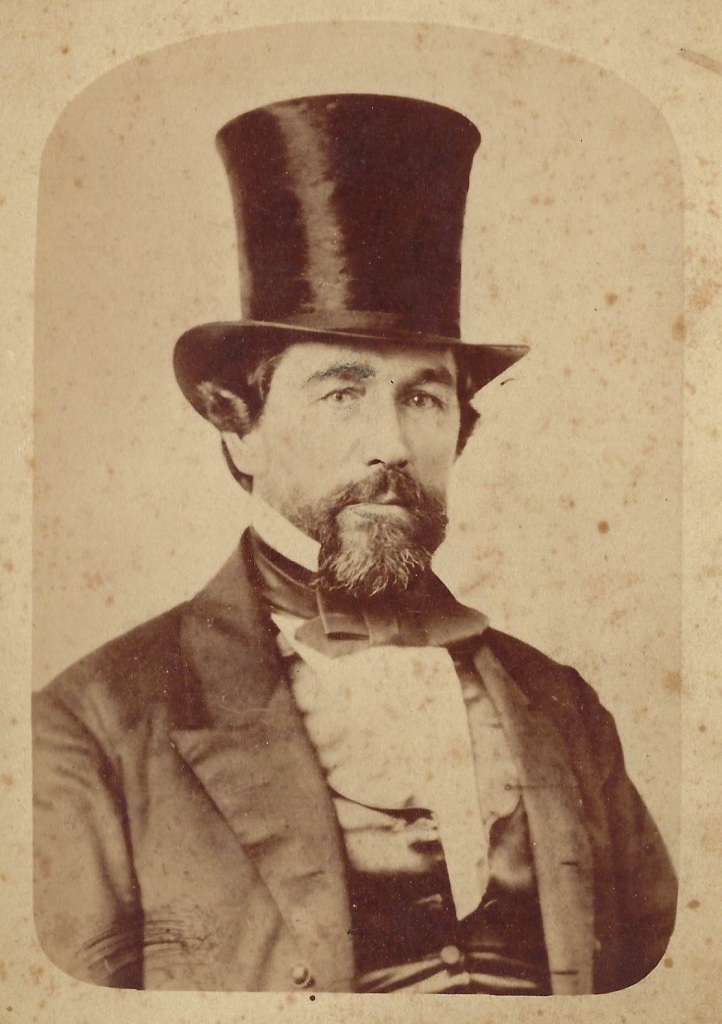
Seventy years of his life he had spent on the plains, and into this time had been crowded events which are history.
– “Col. Alex. Majors,” North Platte Tribune, March 2, 1900
Alexander Majors was an entrepreneur who played a prominent role in the economic growth of early Kansas City. He made his fortune in wagon train freighting and co-founded several business ventures, including the Pony Express.
Alexander Majors was born in Kentucky in 1814 to a family of farmers. His father and mother moved to Missouri Territory when Majors was just four years old – five years before Missouri would become a state. Majors was married twice and had 13 children (of which 11 survived to adulthood).

He married Katherine Stalcup in 1834. They had nine children together; at least three died before reaching adulthood. Katherine died of unknown causes in early 1856, the same year the Majors House was built. A year later, Majors married Susan Wetzel, who was 23 years his junior. Susan gave birth to four children, one of whom was stillborn.
In 1858, Majors moved his business, family, and six enslaved individuals to Nebraska City. The house, and the remainder of Majors’ slaves, were left to Majors’ oldest daughter Rebecca and her husband Samuel Poteet, who was also Majors’ assistant and head wagon master.
Majors and Susan remained married, but were living separately as early as 1873. They may have had a fundamental difference in what they expected from their marriage. Majors wanted to travel throughout the United States, reliving his glory days as one of America’s most famous frontier freighters. Susan, on the other hand, seemed to want to live quietly at home with her oldest daughter in the comfortable life she was accustomed to.
Majors died in 1900 and his buried next to his first wife, Katherine, in Kansas City’s Union Cemetery. Susan died in California in 1915. Before her death, she unveiled the Pony Express monument in St. Joseph, Missouri.
Majors’ adult children scattered across the United States, working as printers, miners, and politicians. Majors’ oldest son, Benjamin, traveled with his father after the failure of Majors’ businesses, and was living in poverty in Oklahoma in 1904. In 1934, Majors’ great-granddaughter, Louisa Johnston, invited her great uncle to live with her in the Majors House, which she had purchased in 1930. Benjamin lived the rest of his life in his boyhood home, and died there in 1938. Louisa lived at the house for the rest of her life, moving into a small caretaker’s cottage when it became uninhabitable. She passed away there in 1979, but not before setting up the Majors Historical Trust and doing much to raise awareness of Majors and his national and local significance.
